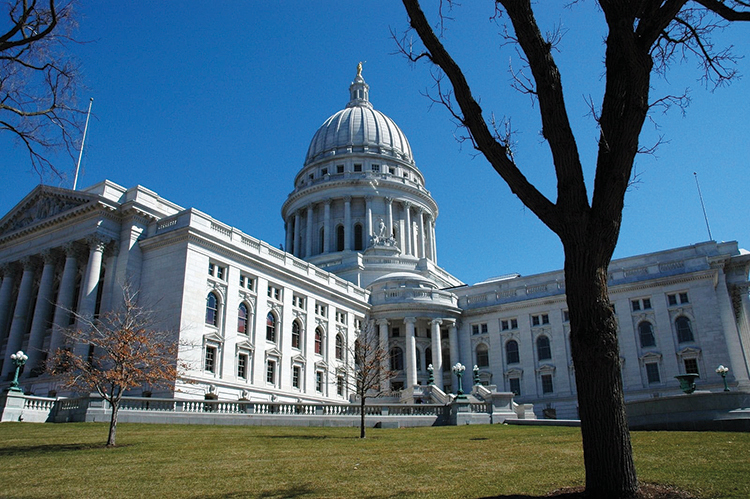MADISON — Workers from all trades and parts of Wisconsin rallied at the Wisconsin state Capitol this week, pushing back against a fast-tracked right-to-work bill backed by Republicans and Gov. Scott Walker.
The gathering paled in numbers and intensity to the protests seen four years ago when Walker pushed through his measure that effectively ended collective bargaining for most public workers. Rallies then lasted for weeks and grew as large as 100,000 people.
Walker, a likely 2016 presidential candidate, over the past four years has said that right-to-work wasn’t a priority, wouldn’t come up this session and was a distraction from his agenda that could lead to protests again that would hurt the state’s economy.
Republicans made the surprise announcement last week that they were moving ahead with the law, Walker said he would sign the bill. He has been a longtime backer of right-to-work and had proposed it as an Assembly member in 1993.
“We need to make Wisconsin more competitive and this certainly does that,” said Republican Senate Majority Leader Scott Fitzgerald, the bill’s sponsor.
Fitzgerald and other supporters argued in the hearing that a right-to-work law would raise wages, give workers freedom to choose whether to pay union dues and improve the economy.
Opponents said the measure will lower worker pay and allow non-union members to benefit from protections and benefits negotiated by the union. Unions have to represent both members and nonmembers in workplace grievances and in other situations.
The NFL Players Association issued a statement opposing it as well, saying right-to-work would hurt union workers at Lambeau Field where the Green Bay Packers play.
The right-to-work debate comes in the wake of the 2011 fight over Walker’s law that effectively ended collective bargaining for most public workers. That law also prohibited the automatic withdrawal of union dues for public workers, like the right-to-work measure would do in the private sector.





